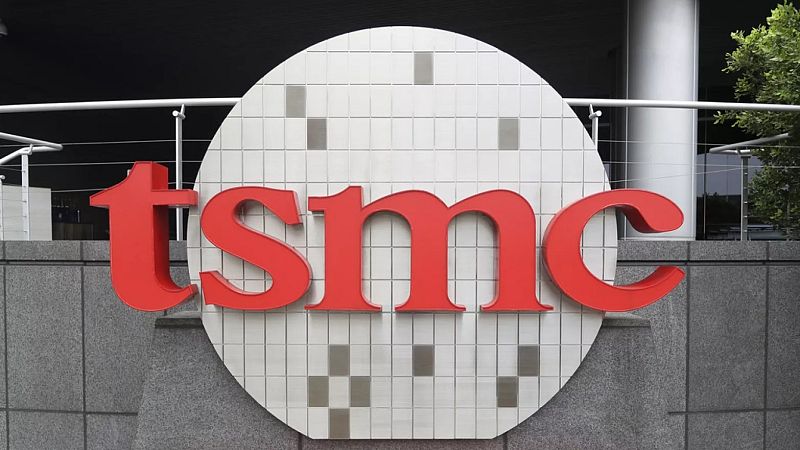
The world’s largest contract chip maker TSMC sees no change in customers’ behaviour, including Apple and Nvidia, for now, despite fears that tariffs will hit the sector hard.
The Taiwan-based company released its first quarterly results and reported net income of NT$360.7bn (€9.77bn), up by a little more than 60% year-on-year, beating estimates.
Revenue increased by 41.6% year-on-year in the first three months of 2025, but dropped by 3.4% compared to the previous quarter, due to the seasonally weak sales in the smartphone division, which provides 28% of revenue.
“Our business in the first quarter was impacted by smartphone seasonality, partially offset by continued growth in AI-related demand.” Wendell Huang, Senior VP and Chief Financial Officer of TSMC, said.
The sector is facing uncertainty over potential tariffs that could seriously impact the semiconductor industry.
US President Donald Trump previously said that Taiwan had taken away the US chip business and that he wanted it back.
In March, TSMC announced plans to expand its manufacturing in the US, pledging to spend a total of $160bn in the States.
“One thing that could come to help it [TSMC] in the near-term, too, is the fact it continues to pump money into the US. It will continue to stress this fact to President Trump as it, and the whole industry, seeks out a more favourable tariff regime compared to consumer goods,” Ben Barringer, global technology analyst at Quilter Cheviot, said.
While investors are nervously watching the White House as it spreads out its plans about semiconductor tariffs, US export restrictions are already impacting specific AI chips, which will force TSMC’s second biggest customer, Nvidia, to write off $5.5bn (€4.84bn) in inventory.
Despite these factors clouding TSMC’s prospects, the company maintained its revenue growth outlook, expecting strong demand in the second quarter; revenue is expected to be between US$28.4bn and US$29.2bn (€25bn and €25.67bn); based on the exchange rate assumption of $1 to NT$32.5.
“While we have not seen any changes in our customers’ behaviour so far, uncertainties and risks from the potential impact from tariff policies exist,” Huang said.
“For TSMC it is very much a case of keep calm and carry on. Its latest set of figures highlight a very resilient business in the face of significant tariff threats for the semiconductor industry,” Barringer said.
The company’s shares were up in pre-market trade in the US but overall it has lost more than 20% year-to-date.
“TSMC’s shares have de-rated significantly over the past few months and is now starting to look cheap given this set of results,” Barringer said, adding “It remains a world class company and within the semiconductor industry, we can see it bouncing back strongly once the economic environment is clearer.”







